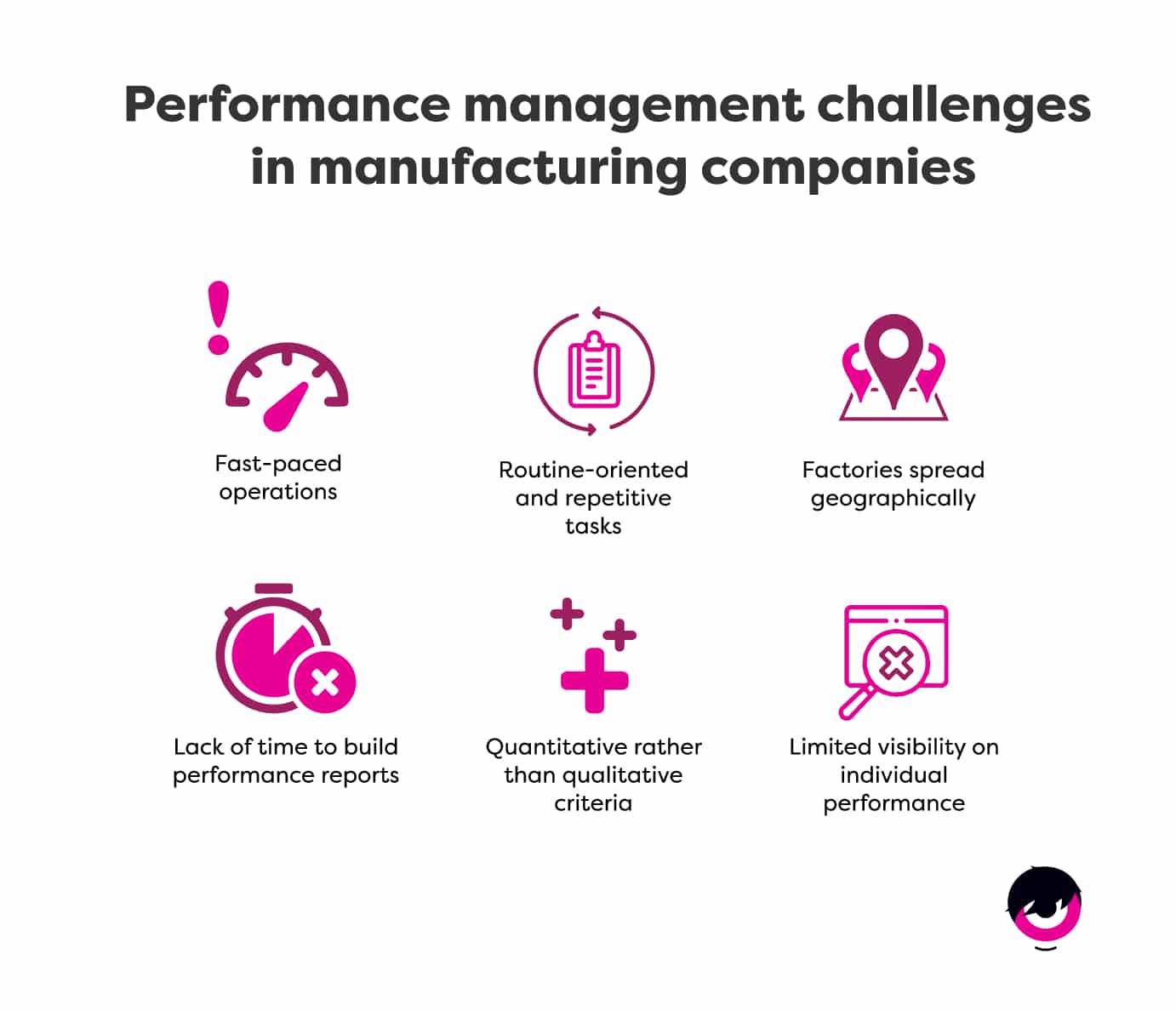Efficient employee performance management is a must for all companies, but challenges differ depending on the industry. Manufacturing organizations face specific issues which might lead them to rank performance management at the bottom of their list of priorities. However, good performance management practices are highly beneficial to all organizations.
Read on to learn more about the performance strategies you need to implement in your manufacturing company!

















